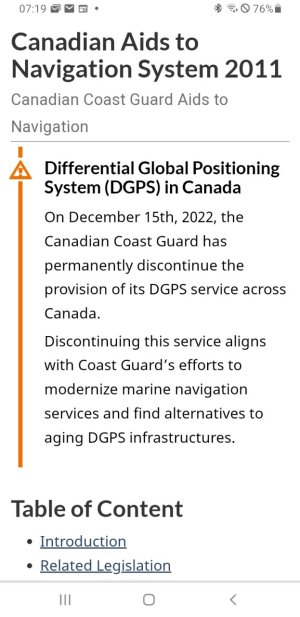zurk
Well-Known Member
DGPS is a technology not specific to a country. the new DGPS systems use a 6 axis solid state gyro (for pitch/roll etc) and compute the difference between two satellite transmissions to get accurate heading info using phase differences. the DGPS is basically on board since the antennas are fixed at a known distance inside the unit itself. For the HS75 the GNSS antennas are separated by 20 cm between phase centers, resulting in a heading performance of better than 0.75° RMS. they are basically GPS compasses - https://www.simrad-yachting.com/simrad/type/compasses/hs75-gnss-compass/#prl_specificationsDifferential GPS stations were discontinued by CCG on December 15th of 2022, so umm no, don't go get yurself a DGPS
and they can feed your autopilot heading just fine BTW. no magnetic interference.
Last edited:


